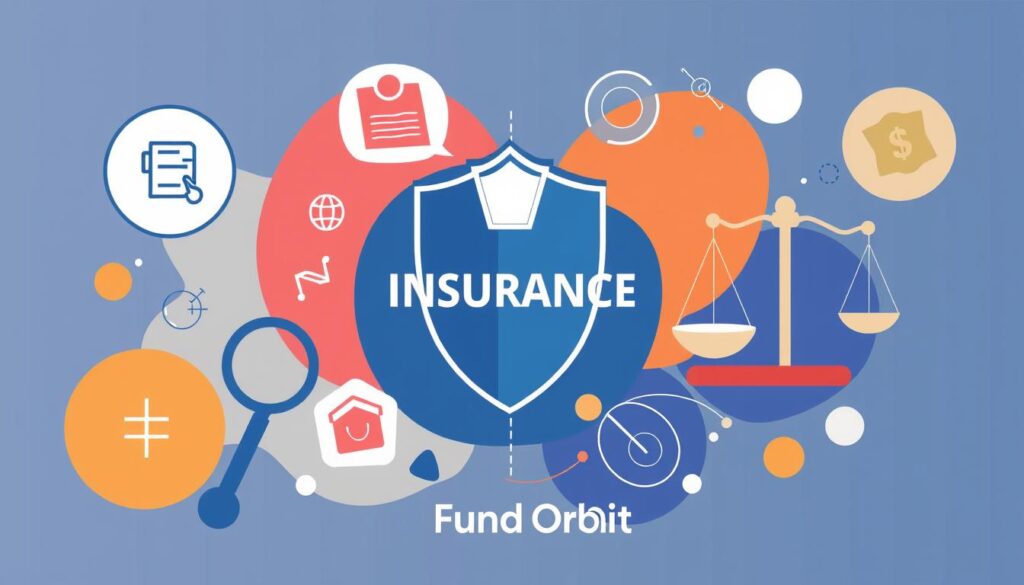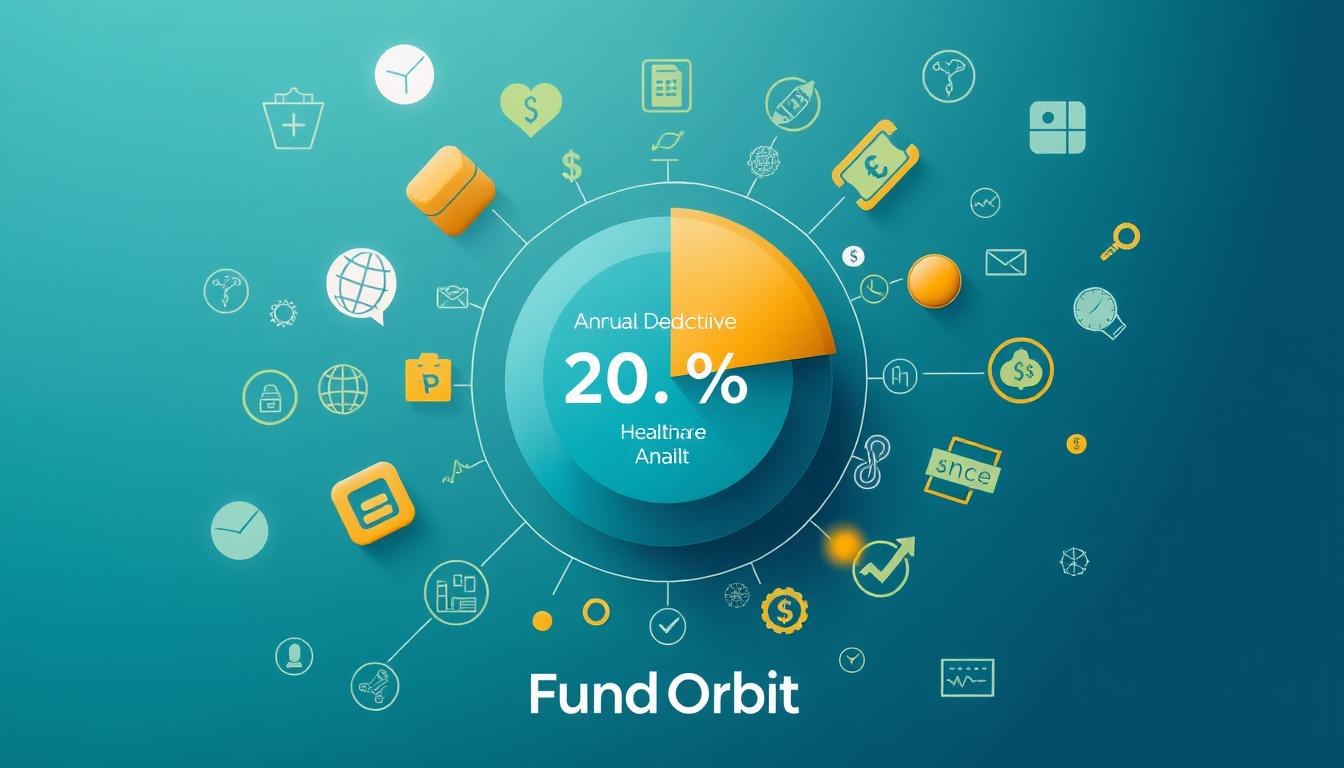Insurance can be hard to understand, with many legal terms and conditions. We buy insurance to protect ourselves and our things. It’s key to know the rules that apply to these policies.
Recent stats show 40% of people buy insurance without knowing what it covers. This can lead to problems with insurance companies. About 25% of people face issues because they don’t understand their policy terms. It’s important to read and get what your policy says, including the key parts.
Knowing your policy terms is key to being well-protected. We need to understand the terms, policy, conditions, and legal parts of our insurance. This way, we can avoid confusion and make sure our policies really cover what we need.
Key Takeaways
- Understanding policy terms and conditions is vital for adequate protection.
- 40% of consumers purchase insurance policies without fully understanding the coverage and exclusions.
- 25% of insured individuals experience disputes with insurance companies due to misunderstandings of policy terms.
- Policy documents, including the declaration page and insuring agreement, must be carefully read and understood.
- Terms, policy, conditions, and legal terms must be understood to avoid misunderstandings.
- Regular review of policy terms and conditions is essential to ensure adequate protection.
What Are Policy Terms and Conditions?
Understanding insurance can be tough, with policy terms and conditions being key. These documents outline what each side must do. It’s vital to understand them to avoid confusion or legal issues.
A privacy policy is a must in most places where data is used. Terms and conditions are also important, helping protect against legal problems. Clear policy documents can boost user engagement by up to 85%.
- Data collection processes
- Security measures for personal information
- Rights of data subjects
- Cookie usage
Knowing about these aspects helps people make smart choices when dealing with data. Being informed about policy terms and conditions protects personal info.
Definition of Policy Terms
Policy terms cover the details of an insurance policy. This includes what’s covered, what’s not, and any limits. These details are key to understanding the policy and what each side must do.
Importance of Terms and Conditions
Terms and conditions are very important. They make it clear what the agreement between the insurer and the insured is. Knowing these documents well helps avoid disputes and makes the claims process smoother.
Key Components of Policy Terms
When you look at your policy, it’s key to know the main parts. These include what’s covered, what’s not, and any limits. These parts work together to protect you well. We’ll dive into each to make sure you get what you need from your policy.
Website terms and use rules are important. They tell you how to use a site or service right. Reading and understanding these rules helps avoid problems. It makes sure you’re using things as you should.
Coverage Details
Coverage details tell you what your policy includes. This is about the events or situations it covers. It’s important to check these details well to make sure you’re protected.
The policy terms also talk about what’s not covered. This can affect how much protection you have. Knowing this helps you understand your policy better.
Exclusions and Limitations
Exclusions and limitations are key parts of policy terms. They show what your policy doesn’t cover. It’s vital to know these to avoid gaps in your coverage.
By looking at your policy terms, you can grasp your coverage fully. This includes any limits. It helps you make smart choices about your coverage.
Premiums and Deductibles
Premiums and deductibles are important too. They show the costs of your coverage. It’s important to understand these costs well.
Knowing your policy terms helps you plan better. It ensures you have the right protection. This way, you can make choices that fit your needs.
| Component | Description |
|---|---|
| Coverage Details | Outlines what is included in your policy |
| Exclusions and Limitations | Outlines what is not included in your coverage |
| Premiums and Deductibles | Outlines the costs associated with your coverage |
Reading Your Policy: A Step-by-Step Guide
When you read your policy, it’s key to know the main parts. This includes what’s covered, what’s not, and any limits. To help, skim for important info, understand tricky words, and mark key sections. This makes it easier to understand your policy and what you must do.
First, skim for key information. Look quickly to find out about coverage limits and deductibles. This helps you know what your policy covers and what you need to pay.
Next, understand jargon. Insurance policies use special terms that might confuse you. Look up words you don’t know and ask your insurer for help. This way, you’ll understand your policy better and know your rights and duties.

Last, highlight important sections. Use markers or sticky notes to mark key areas, like what’s not covered and any limits. This makes it easy to check and understand your policy, ensuring you follow your agreement.
| Policy Component | Importance |
|---|---|
| Coverage Details | High |
| Exclusions and Limitations | High |
| Premiums and Deductibles | Medium |
Common Terms You Should Know
Understanding your insurance policy is key. Knowing common terms is essential. These terms affect your coverage and legal duties. We’ll look at important terms to ensure you’re well-protected.
Terms like premium, deductible, and copay are critical. They show your financial responsibility and coverage level. For example, a policy might have a deductible. This is the amount you pay before insurance covers you. Knowing these terms helps you choose the right policy.

Other key terms include coinsurance, coinsurance maximum, and comprehensive coverage. Coinsurance is the percentage you pay for healthcare costs. Coinsurance maximum is the limit on these payments. And, comprehensive coverage covers damages from non-collision events. Understanding these terms helps you use your policy wisely.
It’s also vital to know about policy limits. This is the maximum your policy pays. There are overall limits and specific limits for certain coverages. Knowing the grace period helps avoid coverage gaps. Staying informed about these terms ensures you’re well-protected.
The Importance of Clarity in Terms
It’s key that both the insurer and the insured know their roles. English contract law says contracts must be clear and specific to be valid. Many disputes come from unclear terms, showing how important clear writing is.
We stress the need for clear policy terms and conditions to prevent issues. Clear language can cut down dispute resolution time by almost half. It also means fewer unenforceable clauses, which could lead to a 25% drop in contract nullification.
Clear terms offer many benefits, including:
- Less chance of disputes and misunderstandings
- Quicker resolution of contract disputes
- More trust and confidence in partnerships
- Better compliance and lower costs for risk management
Looking into the privacy policy and other contract terms is vital. This ensures our policy terms are clear, easy to understand, and can be enforced. It helps protect our interests and avoids future disputes.

By focusing on clear terms, we build a solid base for our contracts and partnerships. This reduces the chance of misunderstandings and disputes. It also makes managing contracts more efficient and effective.
| Benefits of Clear Terms | Results |
|---|---|
| Reduced risk of disputes | 50% reduction in contract disputes |
| Faster resolution of contract disputes | 50% reduction in average resolution time |
| Increased trust and confidence | 80% of business owners rate contract clarity as critical |
How to Negotiate Policy Terms
Understanding your needs is key when negotiating policy terms. It’s important to think about the risk level and the cost of insurance. Many people pay too much for insurance that doesn’t match their risk.
For example, things like third-party injuries and data breaches are big factors. They help decide how much insurance you need.
To negotiate well, first find areas to talk about with your insurer. Look at billing codes and see where costs can drop. Relevant coverage is vital. For instance, you might not need general liability if you don’t meet people in person.
Think about the cost of insurance and how much money you expect from contracts. This helps you make smart choices.
Some important things to think about when negotiating policy terms include:
- Insurance requirements and limits
- Industry-specific factors and risks
- Relevant coverage and possible costs
- Expected money from contracts
By knowing what you need and talking clearly with your insurer, you can get good policy terms. It’s also smart to have a plan for managing insurance and think about the cost of each contract.

Negotiating policy terms is about finding a good balance. You want enough protection without spending too much. Being well-informed and ready helps you navigate this process confidently. This way, your policy terms will fit your needs.
| Factor | Consideration |
|---|---|
| Insurance requirements | Assess industry-specific factors and risks |
| Relevant coverage | Consider general liability, cyber, and errors and omissions coverage |
| Cost of insurance | Weigh against anticipated revenue from contracts |
Reviewing Your Policy Regularly
It’s key to check your policy often to make sure you’re covered well. We suggest looking over your policy every year. This helps you keep up with your changing insurance needs. Make sure to note down important details like policy numbers and when it starts and ends.
Think about the type of insurance you have. For instance, term life insurance has an end date. But permanent insurance might have a fee if you cancel early. Long-term care insurance usually pays out about $100 a day for up to 500 days.
Keeping Up with Changes
Staying informed about policy changes is vital. This includes updates to what you pay, deductibles, and what’s covered. Always check with your insurer for any news and read your policy documents closely.
Some important things to look at when reviewing your policy are:
- Policy terms and conditions
- Coverage details and what’s not covered
- What you pay and deductibles
- When it ends and how to renew

By regularly checking your policy and keeping up with changes, you can make sure you’re well-covered. Always read your policy carefully to know what’s included and what’s not.
| Policy Type | Review Frequency | Key Considerations |
|---|---|---|
| Term Life Insurance | Annually | Expiration date, surrender charge |
| Long-term Care Insurance | Annually | Per-day benefit, duration of coverage |
| Health Insurance | Annually | Premiums, deductibles, coverage details |
Consequences of Ignoring Terms
We often overlook the importance of understanding our policy terms and conditions. Ignoring them can lead to severe consequences. When we sign a user agreement, we enter a contract with the service provider. It’s vital to know the terms to avoid risks.
A study found that nearly 98% of people don’t read Terms and Conditions before agreeing. This can result in denied claims and financial losses.
Ignoring terms can lead to serious issues. It’s important to read and understand our policy terms and conditions. Risks include denied claims, financial implications, and legal action.
To avoid these, we must carefully review our policy terms and conditions. If unsure, we should seek clarification.
Understanding our policy terms and conditions protects us in disputes or claims. It’s also key to regularly review them for changes or updates. This helps us avoid risks and comply with our user agreement.
Ignoring terms can have serious consequences. Some include:
- Denied claims
- Financial implications
- Legal action
It’s essential to take the time to read and understand our policy terms and conditions. This way, we can avoid these consequences and stay protected.
Making Sense of Policy Updates
Insurance policies change to keep up with the market. It’s important to know about any updates to our coverage. These changes can affect how well we’re protected.
Staying in touch with our insurance company is key. We should ask about any policy terms, conditions, or legal terms changes. This helps us understand what’s new and make smart choices about our coverage.
Many insurers send updates through emails or online portals. Using these tools helps us stay on top of policy changes. We can then review them carefully.
It’s vital to keep up with policy updates. This ensures our coverage fits our changing needs and risks. By staying informed and working with our insurance provider, we protect our finances. We can rest easy knowing our policy terms and conditions are up to date.


